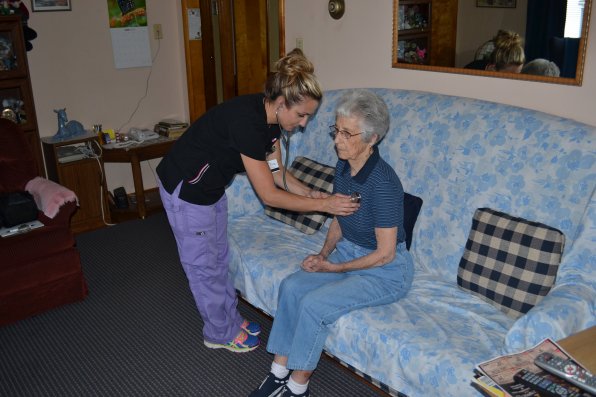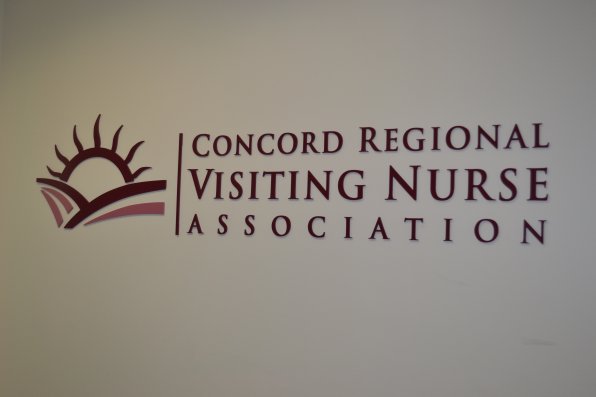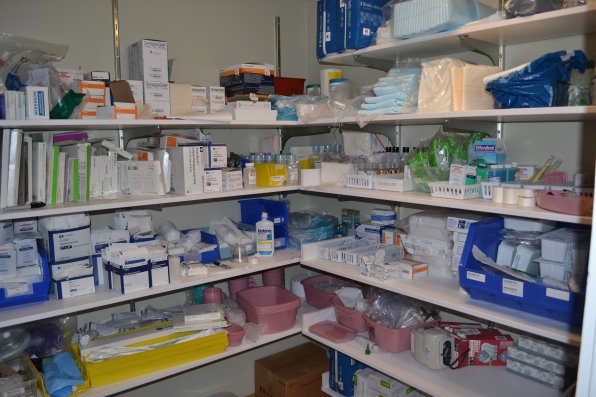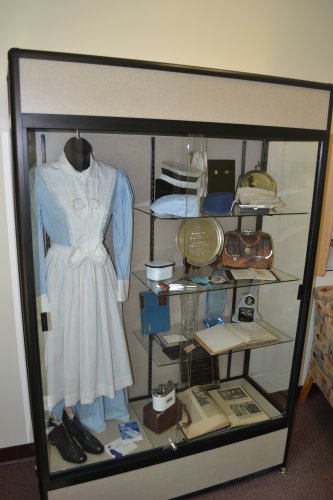The last thing any of us wants is to get sick or injured.
Unless it happens to be on a Friday when it gives you a random three-day weekend. But usually when those circumstances arise, it’s more of a quick thing and you’re back to your normal self when Monday rolls around. What we’re talking about are real illnesses or injuries that require more than a day on the couch and an extra nap; like a trip to the emergency room or maybe even surgery – things like congenital heart failure, a stroke or a torn rotator cuff, to name a few from a list that is long and scary.
Yet sometimes a hospital stay, whether it be a few days or a couple weeks, isn’t enough to get you fully back on your feet. That’s when you’re likely to see someone from the Concord Regional Visiting Nurse Association walking up your front steps for a visit. Since 1899, the nonprofit organization has been taking care of people in their homes, bringing the medical field into your own little corner of the world.
“It’s really to help educate inpiduals who have had an illness or are going through a tough phase in their life,” said CRVNA President Mary DeVeau. “It could be two days or a year, it depends on the patients’ needs.”
When CRVNA began, it was centered around caring for new mothers and babies. And while that is still a part of what the VNA does, the scope of its work has grown by leaps and bounds. Now they service a 39-town area, which stretches west from Concord to Washington and east to Northwood, as well as north to Franklin and south to Bedford, and employ 380 people in the form of nurses, occupational therapists, physical therapists, speech therapists and social workers, along with paraprofessionals, office workers and others – we just can’t list them all. They even have a large army of volunteers.
You might be wondering how you get a visit from a nurse or other medical person at the VNA. Well, they work closely with the local hospitals and care facilities, so a call will come in about a soon-to-be discharged patient who needs a little extra help once they return home. Family members will also call with concerns about a relative, and that’s when a nurse will go out for an initial visit.
“Most people will recover very well at home,” DeVeau said. “Our job is to take someone who had an acute event or declining health and get them back. We’re there to help them stay in their world.”
They’ll do an evaluation to see what the patient’s needs are, speak to their doctor, and from there, make recommendations as to what the next plan of action should be. Sometimes, if it’s a surgery like a ligament replacement or reconstruction, a couple visits from a PT or OT might be all that’s needed.
“If we got a call today and they said, ‘Can you see this patient tonight?’ we’d see the patient,” DeVeau said.
For someone like Mary Cleveland, who is dealing with congenital heart failure and COPD, she requires a little more attention and consistent visits. Cleveland spent 32 years as the manager of the Penacook School hot lunch program and only took 10 sick days during that time, but she’s required at least once a week visits recently for her conditions.
Amy Desrochers, a registered nurse, is Cleveland’s case manager and the one who has worked closely to teach her how to take care of her medication, what symptoms to look for and when to report them and what types of activities are still okay. Safety in the home is a big thing for the VNA, anything from when to call 911 to safety bars in the bathroom.
“We’ve done a lot of teaching,” Desrochers said. “We see how she’s doing and it varies with each visit.”
And with Desrochers being a fixture in her life for the last six months, Cleveland has grown comfortable with her and other care providers who have come for a visit, and isn’t afraid to ask questions and learn more about what she needs to do to maintain a certain lifestyle – in her own home.
“It’s better to ask a stupid question than to ask no questions,” Cleveland said. “A lot of them I see only once, but they make me feel comfortable. They’re just like family.”
Desrochers is just one example of who will knock on your front door. When at all possible, the VNA tries to place nurses in or near the communities in which they live, especially since they don’t need to be in the office more than once a week for meetings. All the charting and notes are done on laptops (and have been since a massive switch to electronic records in the late 90s) so there’s not any paper work to file – and the whole point is for the nurses and medical personnel to be out seeing patients. There’s a scheduling system that is broken down by geography, so everyone knows where they need to go on any given day.
“They literally use their laptops to find out anything they need to about the patients,” DeVeau said.
There are about 1,100 patients in the home care program, as well as an additional 130 in hospice – at home, in the hospital or at a nursing home – and 150 or so in the personal services program, where caregivers help with things like errands, housework, meal preparation and personal care to allow people to remain independent in the home. They will even come and check out your newborn baby.
“What we started doing is what we still do,” DeVeau said.
That’s a lot of people to see, but luckily they don’t all need a visit each day – although the VNA does see patients seven days a week.
A lot of patients are seen once a week, but it depends on their needs, with visits from a nurse lasting about an hour and paraprofessionals anywhere from an hour to two. Every 60 days, patients are reevaluated to see if there’s still a need to be seen and will be recertified if necessary.
“Most people who need support do well in their home,” DeVeau said. “After a couple visits, they feel safe and comfortable.”
And with an aging population, CRVNA will likely see a spike in the coming years.
“Our services are going to become more and more important,” DeVeau said.
About three quarters of the VNA’s services are funded through the Medicare program, while the rest come from third party insurances, the state, private pay and the remaining from donations and grants.
If you or someone you know needs a little help, visit crvna.org for more.












